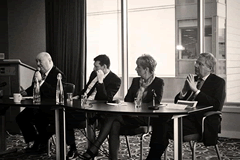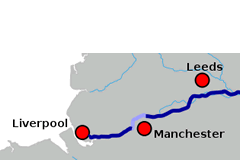The new Combined Authority was somewhat appropriately launched on 1st April, and though our political masters finally saw sense in terms of the name of the organisation, dropping the ‘Halton, ‘Knowsley, Sefton, St Helens, Liverpool & Wirral Combined Authority’ title in favour of the rather more apt ‘the Liverpool City Region Combined Authority’, they could not resist snatching defeat from the jaws of victory.
The crowning of Wirral leader Councillor Phil Davies as chair of the new organisation did not impress Liverpool mayor Joe Anderson, who is threatening legal action over the process that was adopted to reach this decision – he and the leader of Sefton council missed the vote as they were between three and seven minutes late for the start of the meeting – depending on who you believe.
Whatever the truth, how the council leaders representing around 50% of city region residents can be excluded from such a decision is baffling.
All of this would add up to a good script if we were talking about an episode of Yes Minister, but for a city region that has ambitions to win millions of pounds of government investment for much needed infrastructure projects across the region it is bordering on negligent.
I argued that Joe Anderson should lead this new body in my blog ‘the special one’ and nothing I have heard or seen since has changed my mind. That seems unlikely to happen now, and Liverpool’s Mayor is just as unlikely to put in jeopardy the potential additional investment Combined Authority status brings by withdrawing the city’s support. That is a truth that the four district leaders who continue to put parochialism before common sense are counting on.
Nevertheless, the experience that has been the Combined Authority journey so far offers lessons that ought to have been learnt long ago. We need to learn to wash our dirty laundry behind closed doors. We need to stop acting like the basket case Westminster politicians and opinion formers think we are. We need to grow up!







